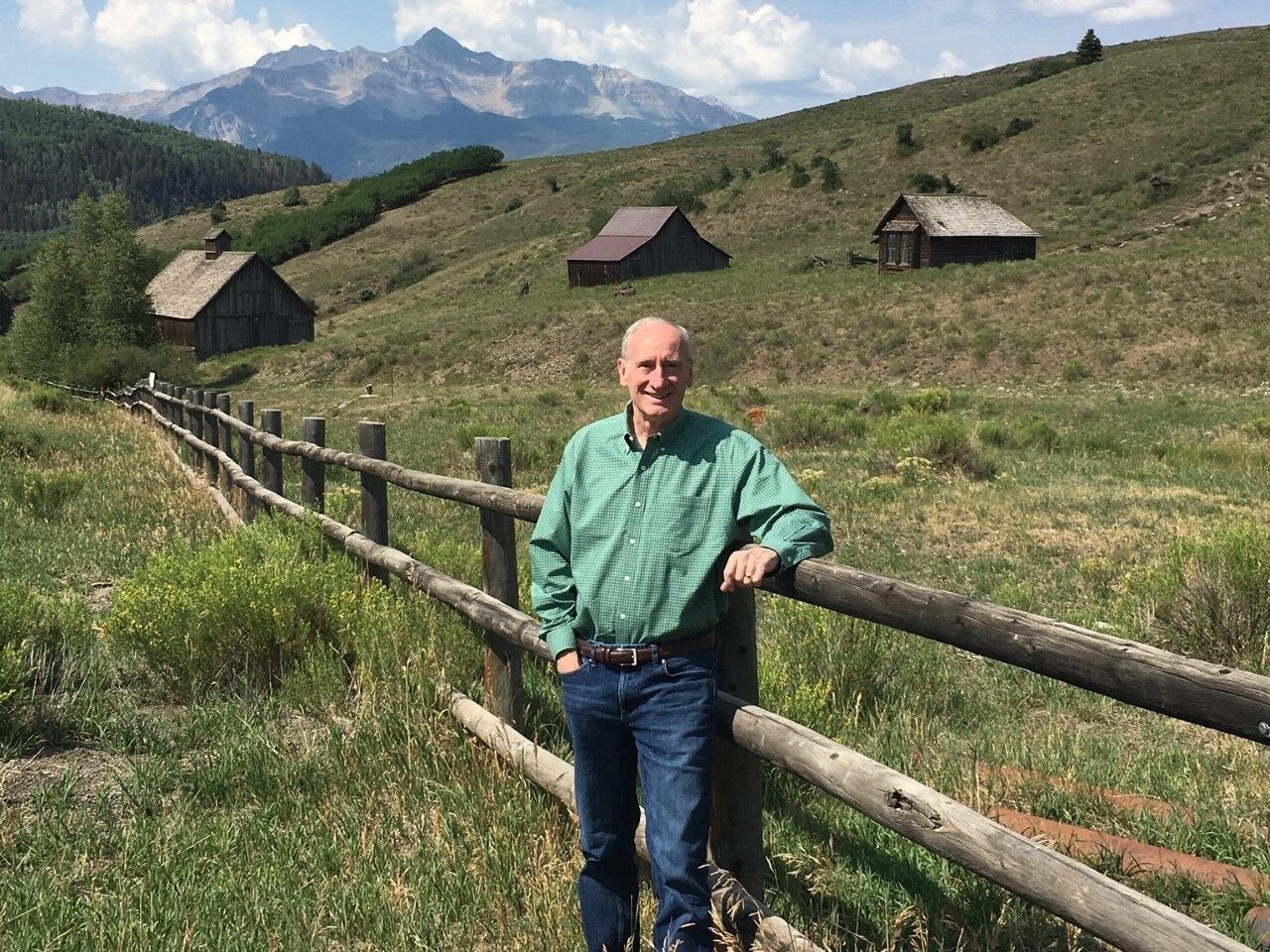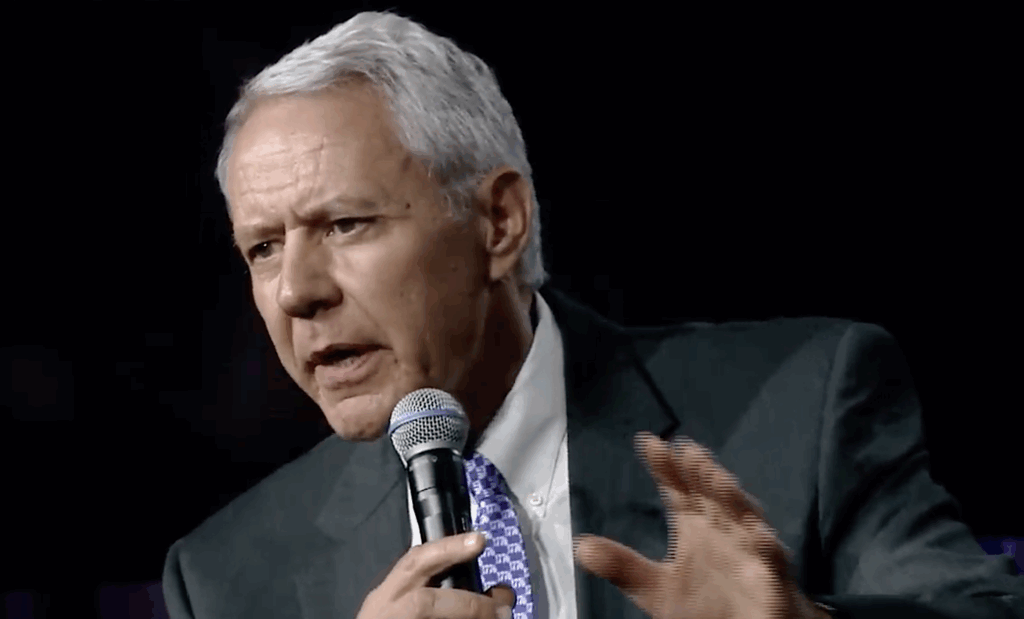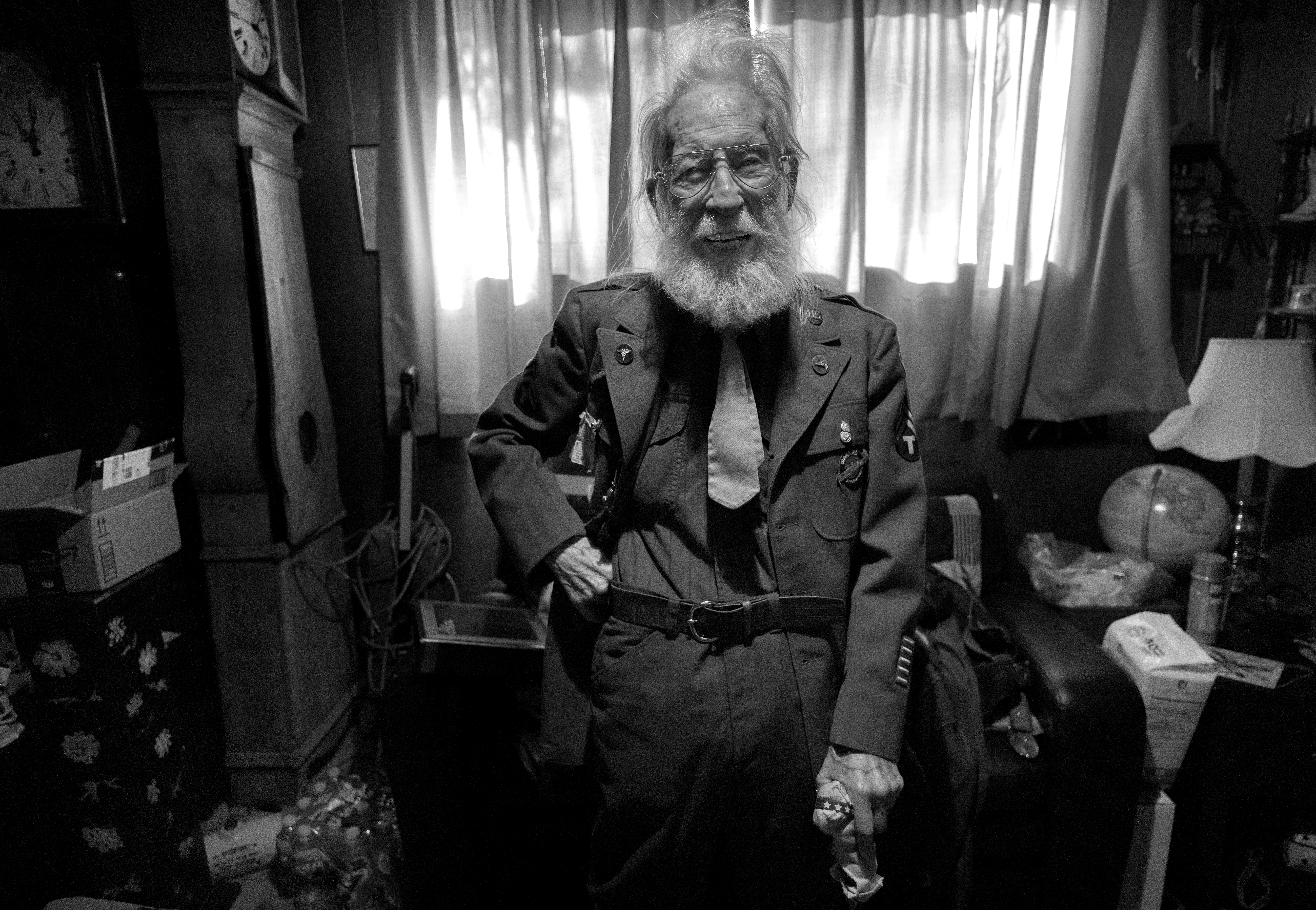Q&A with Tom Perille — M.D., Democrat for Life

Brief bio:
-
President of Democrats for Life of Colorado, since 2019.
-
Retired physician; board-certified internist; practiced medicine in the Denver area for over 30 years.
-
Named Exempla St. Joseph Hospital Physician of the Year, 2011.
-
Holds a bachelor’s degree from Knox College in Galesburg, Illinois; earned his M.D. from Northwestern University Medical School in Chicago.
Colorado Politics: You practiced your entire medical career in the shadow of 1973’s Roe v. Wade, the landmark ruling still both revered and reviled across the country. Although you are not an ob/gyn, did you feel a tug at your conscience as a pro-life physician in a profession in which some of your peers legally performed abortions? What is the origin of your own views on abortion, and what inspired you as a doctor to become an activist on the issue?
Tom Perille: As an internist, I never had to deal directly with abortion. I practiced in a large multi-specialty group setting, and the hospital where I was an attending physician did not perform abortions.
My pro-life views arose naturally from the moral framework instilled in me by my family and faith, as my parents taught me to love and respect every human being. At the same time, as someone whose favorite subject in school was biology, I learned and came to appreciate that human development was a seamless, continuous process that started at the embryo/fetal stage and continued for years after birth. All along that continuum, there is never a time when that being is not fully alive and fully human. To me, there could be no moral justification to kill that precious, vital human being at any time from conception to natural death.
I trace my pro-life activism to two experiences while I was at Northwestern Medical School. They made me realize that it was not enough to simply oppose abortion personally. The first experience came when I attended a forum on abortion hosted by the medical school. During the discussion, an OB/GYN physician who performed abortions was trying to portray matter-of-factly what happens in an abortion. He passed around a bucket from his most recent procedure. Lying at the bottom of that bucket was a dead second-trimester baby. That image was seared in my memory. I couldn’t fathom how anyone could interpret what I saw as anything but a crime against humanity. In the second experience, I was on my OB/GYN rotation. I encountered an attending OB/GYN physician who drove a Rolls Royce. I was curious how she could afford such luxury. That is when one of the resident physicians told me she had a lucrative abortion clinic. It made me realize that abortion was a big business and to understand what drives the practice, you had to follow the money.
CP: Arguably, you dwell in the lion’s den — as a registered Democrat going against the grain of a fundamental plank in your party’s platform. Given your staunch position on the rights of the unborn, why do you remain in your party at all when you would be at home in the GOP?
Perille: I have been a life-long Democrat. I was always drawn to the party’s devotion to the most marginalized and vulnerable in our society. In the ’70s and ’80s, there were many proud pro-life Democrats — which seemed to be the natural position for the party. Even as it has embraced abortion extremism, I admire the Democratic Party for pursuing many issues dear to my heart and the heart of Democrats for Life of Colorado. These are what we call, “whole-life” policies, such as paid family/medical leave, affordable daycare, affordable healthcare/housing, a living wage, immigrant/refugee rights, criminal justice reform, gun safety and green energy. I was happy to work with fellow Democrats to end the death penalty in Colorado and lobby for paid family/medical leave this past legislative session. I am not a Republican, and I refuse to let the Democratic Party elite ignore and disrespect the 30% of Democrats who are pro-life like me.
I would like to work with pro-choice Democrats in my party to prioritize policies and legislation that decreases the demand for abortion and assisted suicide. There is much room for common ground.
CP: If there are, in fact, more than a few pro-life members among your party’s rank-and-file, why don’t we hear more from them?
Perille: One third of the Democratic Party is pro-life. If you include those who think there should be reasonable limits on abortion, you are now talking about a clear majority. Vocal and powerful abortion extremists in the party have staked out their claim and made it difficult — and intimidating — to voice a more nuanced view on a very complex issue.
I talk to Democratic candidates for office at the state and federal level all the time. I also reach out to current Democratic state representatives and senators. What I have learned is that they are much closer to my position than their public persona would suggest. There are many more “safe, legal, and rare” Colorado Democrats in the political class and the rank-and-file than there are “shout your abortion” Colorado Democrats.
There are some states, like Louisiana, where pro-life Democrats thrive, and they have been instrumental in instituting striking Democratic reforms. People like Gov. Bel Edwards and state Sen. Katrina Jackson have been extremely effective and popular leaders.
The contrast between what Republican politicians think about abortion and what Democratic politicians think is not as stark as it seems. One of the main differences is that abortion special interests play an outsized role in Democratic politics. Planned Parenthood and Cobalt are to the Democratic Party what the NRA and Rocky Mountain Gun Owners are to the Republican Party. They strike fear in the hearts of politicians. If politicians don’t tow the line on their preferred stance on an issue, their soft money will disappear, and they will be threatened with a primary challenge. Colorado Democrats have told me this — always in confidence. It appears that the influence of the NRA/RMGO is waning in the Republican Party. It is my hope that we will see the same thing happen in the Democratic Party. Planned Parenthood and Cobalt don’t reflect the diversity of our party on pro-life issues. A single, well-financed, special interest should not drive the agenda of any political party.
CP: Your national organization, Democrats for Life of America, held a pro-life caucus earlier this month outside the Democratic National Convention in Milwaukee to, “highlight the need for the Democratic Party to return to its roots as an inclusive big tent party…” What is the strategy of pro-life Democrats like you to bring back that big tent?
Perille: The collapse of the “big tent” dates to the DNC’s decision to exclude popular pro-life Gov. Bob Casey from speaking to the convention in 1992. Since then, the Democratic Party has gradually retreated from Bill Clinton’s formulation of “safe, legal, and rare” and moved to robust support for unrestricted abortion until birth.
This year’s DNC convention was the first which failed to recognize the pro-life caucus or allow pro-life Democrats to testify before the platform committee. Also, this year, ActBlue refused to allow DFLA to raise funds for pro-life incumbent Democrats, and the Democratic Attorney General’s Association instituted a litmus test for pro-life Democrats. Counterintuitively, this has caused the energy amongst whole-life Democrats to increase. We know it will no longer be OK to remain silent. We are determined to publicize the damage abortion extremism will do to Democratic chances of electoral success and legislative accomplishments.
In Colorado whole-life Democrats are gaining support by championing reasonable and popular legislation such as a restriction on late-term abortion — Prop 115. There is no biological difference between a baby born at 22 weeks gestation and a 22-week fetus. It is an injustice that the former is protected by state law and the latter can be legally and cruelly killed. By embracing this kind of common-sense legislation, we will energize whole-life Democrats and recruit thousands of left-leaning independents to our “big tent” party.
CP: Your group also has been vocal in opposing physician-assisted suicide, legalized in Colorado by Proposition 106, which was overwhelmingly approved by the state’s voters in 2016. Since then, there hasn’t been a lot of news coverage of the measure’s implementation. How has the new policy fared in this state, and has it lived up — or, perhaps, down — to your worst fears?
Perille: Colorado’s experience with the End of Life Options Act is just as bad as we had warned. There is an exponential increase in assisted suicide and virtually no oversight. From 2018 to 2019 there was a 38% increase in lethal medications prescribed. Critical forms such as the patient consent form, attending physician prescribing form, and the consultant physician consultation form are too often late or entirely missing. Even more shocking is the fact that in only 1 out of 328 deaths reported was there documentation of a mental health evaluation. (Studies have shown that there is a high prevalence of treatable depression in individuals seeking assisted suicide.) The risk of abuse and coercion are substantial and yet the state of Colorado seems uninterested in protecting its citizens.
I hope to get a legislator to sponsor a bill to provide more accountability and oversight for the End of Life Options Act in the next legislative session.
CP: Historically, a lot of America’s pro-life movement has been driven by people who are devoutly religious, whether as Catholics, evangelical Christians, or others. How do you make your case for pro-life political action to someone who is not religious or even a professed atheist?
Perille: The majority of pro-life arguments are based on science and not religion. Science tells us when human life begins. Science tells us the sophisticated traits and behaviors of the growing embryo and fetus. Science tells us that the fetus can feel pain, acquire tastes for food, recall musical compositions, and even demonstrate social behavior in utero.
History tells us that every time we dehumanize a class of human beings, it results in exploitation and violence. Abortion follows this same egregious pattern. Every human being has an inalienable right to life as championed in the Declaration of Independence and Constitution. That right is not contingent on their age, stage of development, sex, sexual orientation, ethnicity, race, religion, intellectual/physical abilities, or financial resources. Expanding human rights to those who have been historically excluded is progressive.
This is why people who subscribe to a pro-life or whole-life philosophy are so diverse. People from all religious traditions and no religious tradition are represented.
CP: What percentage of your fellow physicians would you estimate express some form of pro-life sentiments — ranging from outright opposition to abortion on demand as a matter of law, to at least expressing moral qualms about the procedure itself?
Perille: Physicians are a microcosm of our society. In my experience, there are an equal number of physicians who are pro-life and who are pro-choice. The only disparity is that pro-choice physicians have managed to assume leadership roles in several medical organizations including the influential American College of Obstetrics and Gynecology, the AMA, and the New England Journal of Medicine.
What is disheartening is the fact that even medical professionals are uninformed on the abortion issue. I periodically engage fellow physicians in dialogue on abortion. Too many are unaware that late second- and third-trimester abortions are common in Colorado. Hundreds of late-term abortions are performed each year in Colorado, representing approximately 5% of total abortions. Even fewer are aware that the majority of these late-term abortions are performed on healthy women with normal fetuses.













